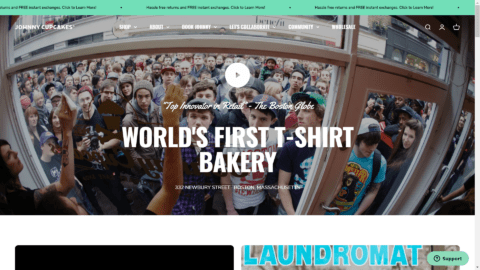Retailers must deploy and manage complex technical environments that include a plethora of “tags,” or lines of code that include everything from HTML to JavaScript, pixels and digital data. These tags enable third-party applications such as web analytics, testing, targeting, display advertising and social media services, among others, to function on a web site.
Tag management systems help organizations implement and maintain online applications more efficiently, sometimes in real time. The systems also help businesses maintain accurate and complete tagging for the variety of elements on their web sites.
A Forrester Research brief, titled: Understanding Tag Management Tools And Technology, investigated the adoption of tag management applications, as well as the key benefits organizations have seen with implementations.
Through a survey of 76 tag management system users, the research found respondents used these solutions to maintain the following:
- Web analytics (88%);
- Search marketing (64%);
- Ad serving (62%);
- Affiliate marketing (59%);
- Behavioral targeting (50%);
- Testing (47%);
- Audience measurement (42%);
- Social media (38%); and
- Voice of the customer services (26%).
The study also revealed that 50% of respondents had implemented tag management solutions within the last year. This spike in implementations is fueled by the continuing growth of e-Commerce, and by advanced tag management system functionalities that allow retailers to revise and manage tags in real time — without relying on IT.
“Previously, marketers had to get their IT staff involved to deploy these tags onto their web sites, which sometimes took weeks or months,” said Erik Bratt, VP of Marketing at Tealium, in an interview with Retail TouchPoints. “With tag management, digital marketers can manage different vendor tags on their own via an intuitive web interface. This helps them launch more revenue-generating campaigns faster and more easily, while freeing valuable IT resources to work on more strategic initiatives.”
In fact, among current tag management users, 53% said implementing a new or revised tag now requires one hour or less, according to the Forrester report. Previously, tag implementation took several days (17%), a week (13%) or several weeks (22%).
When integrating new tools and applications into e-Commerce platforms, retailers must ensure the additions don’t compromise overall site performance. Tag management solutions help smooth integrations by condensing tags and making them more “digestible” for web sites, according to Tony Bombacino, CMO of BrightTag. Additionally, these solutions allow companies to “turn off” tags that break or fail to further improve site performance and in turn, help provide a great customer experience.
“The number of third-party digital marketing vendors is proliferating, creating a series of challenges pertaining to retailers’ speed-to-market,” Bombacino said. “Sometimes, tags can interfere with site performance: Between 50% and 70% of web site latency can come from the presence of numerous tags. Additionally, without a tag management system in place, if a single vendor tag fails, it can hinder or halt page loads completely.”
Improving Performance, Processes And Customer Satisfaction With Tag Management Systems
A variety of retailers are reaping benefits from tag management systems, including improved web site performance and more efficient internal processes.
For example, Deckers Outdoor Corporation, a lifestyle company that includes brands such as UGG Australia, leveraged the Tealium iQ tag management solution to improve customer satisfaction during the holiday season.
All holiday eTailers must ensure optimal e-Commerce site performance and uptime, especially during peak-traffic days such as Black Friday and Cyber Monday. However, Deckers experienced a turbulent Cyber Monday when an online advertising pixel malfunctioned and in turn, hindered page load speed for the entire e-Commerce network of brands.
Deckers logged into the Tealium web-based interface and turn off the malfunctioning tag on the UGG site, according to Nick Smotek, Web Development Manager for Deckers. As a result, the company was able to “retain 100% of our orders during that day.”
Brooks Brothers also saw positive results after implementing the Ensighten tag management platform, which allows retailers to test and implement e-Commerce applications faster and more efficiently.
“We were looking for a way to achieve true one-to-one marketing and deliver a great user experience,” said Ruchir Amin, Manager of Web Interactive for Brooks Brothers. “Ensighten provided a truly agile marketing platform that enabled us to fully control the deployment of our marketing technologies and tags, while offering a highly personalized digital experience.”
Finding The Right Solution
To find the most effective tag management solution for their businesses, retailers should focus on a variety of elements, including the depth of support required and provided, according to Boaz Ronkin, Head of Products at Ensighten.
The optimal system must “support any marketing technology tag,” Ronkin said. For example, “some solutions cannot support complex tags such as full web site analytics and optimization.”
During the decision-making process, retailers also should focus on if and how their technology partner can grow and evolve with their businesses.
The ideal partner should “offer a smart mix of both technology and people to address the immediate issues and opportunities,” Bombacino stated. “But the technology also should be able to scale as the retailer business grows, especially as new channels and levels of sophistication are added. Retailers need to ask, ‘what happens after these basics are addressed?’ We see workflow improvements, site performance gains and smarter marketing as the beginning, not the end.”
The Data Connection
As retailers’ omnichannel strategies become more advanced, they will require solutions that can help them collect and manage data within e-Commerce applications and integrate them with other cross-channel information, according to Bombacino.
“I believe the tag management conversation will quickly evolve from just tags and browsers to omnichannel data management,” Bombacino explained. “Since tags simply enable the collection and connection of data, the industry will begin having more conversations about the data itself. Most retailers do business beyond web sites and will be trying to determine how to best collect and connect their cross-channel customer data in real time to enable smarter marketing, better site and customer experiences, and improved ROI across the entire enterprise.”
Tag management systems also will evolve into a key source for obtaining actionable campaign data, according to Bratt, making the solutions “the de facto method for how enterprises deploy their online solutions.”
Currently, retailers must purchase online customer data from different vendors, push it into a central warehouse, and stitch it together to create a comprehensive customer profile, Bratt added. This leaves retailers struggling to integrate visitor-level data across different channels and vendors. “Tag management solutions can provide clean, correlated data which can be streamed into a company’s data warehouse. This data can then be used to better understand the customer journey across channels, and improve the effectiveness of customer acquisition and retention initiatives.”











